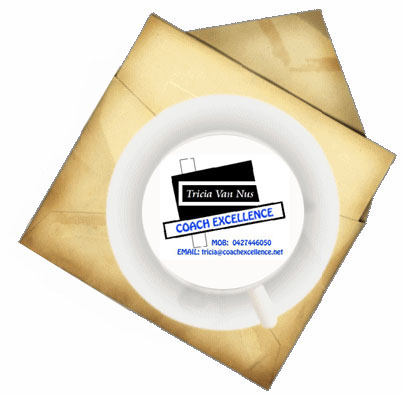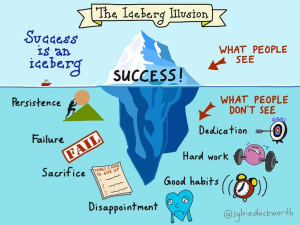HEARING
HEARING……. is it worth protecting????
Thoughts by Tricia Van Nus.
All shooters have been taught from their earliest days at the local club that shooting affects hearing, and that ear protection is a “must”. Most use the small mushy pellets, some have the formed plastic version in vivid colours…….and some unfortunately choose to disregard the advice and do not protect their ears at all. From the interesting and valuable resources on the website of Hearing Australia I have compiled a few notes….. food for thought…. even music to the ears!
Whatever the style of preferred ear protection, it is essential to take stock of where you are with respect to your ears and realise that it may not only be your sport that is damaging your hearing. Workplace and social activities may also contribute to a hearing loss. This hearing loss will generally happen quite slowly – often to the point where it is denied. The one sure way to find out where you are at is to attend your local Hearing Practitioner and ask for a hearing test
OK – SO NOW YOU HAVE HAD A HEARING TEST The results of a hearing test will often indicate the degree and type of hearing loss. Of course you must remember that these comments are very general – see your health care professional for more accurate advice
Degree of hearing loss (decibels, dB) What that may mean in real terms
Mild: 21-45 dB You may have some difficulty hearing soft speech and conversations but would manage in quiet with clear voices.
Moderate: 46-60 dB You would have difficulty understanding conversational speech and more so in the presence of background noise. TV and radio would be turned up.
Moderately severe: 61-75 dB The clarity of speech heard may be significantly affected and this can restrict the benefit of a hearing aid.
Severe: 76-90 dB Normal conversational speech is inaudible. A hearing aid will amplify many speech sounds. Visual cues may be necessary in understanding speech.
Profound: 91 dB + There is great inconsistency in the benefit derived from a hearing aid. Some can understand clear speech face to face in places with good auditory conditions when wearing a hearing aid. Others find it impossible.
NOISE INDUCED HEARING LOSS Exposure to excessively loud noise is very similar to exposure to ultraviolet radiation from the sun… too much can be dangerous. Around 27% of people have a hearing loss as a result of exposure to excessively loud noise. The ear does not differentiate between noise and sound. The brain does that. Noise is often defined as annoying sound. Though you may not find a noise annoying, it may be sufficiently loud to damage your hearing. Noise affects you by either just being irritating, or by actually damaging the hearing mechanisms in the inner ear.
An excessively loud noise is when you must use a raised voice or shout in order to be able to speak to someone at an arm’s length. The noise in that area is possibly dangerous.
ENTERTAINMENT & MUSIC Noise does not need to be unpleasant to cause damage. Do not imagine for a moment that only workplace noise has an effect on your hearing. Many rock musicians suffer from a disabling hearing loss. The ear does not distinguish noise produced by work activities and noise produced by leisure activities, the brain does.
ILLNESS OR INFECTION INDUCED HEARING LOSS
Some medications and chemicals may disrupt your hearing. If you use chemicals at work or at home, take a few minutes to study the instructions in the safety sheet that should be supplied with chemicals. If taking prescribed drugs, and your ears start to ring, inform your doctor immediately. Some medications have the potential to harm hearing if used over time or in high doses.
PHYSICAL INJURY Obviously actual physical injury may lead to hearing loss…. a blow to the head, damage to the neck in a car accident, or damage to the eardrum while engaging in water activities
EVER WONDERED HOW MUCH NOISE COULD CAUSE PERMANENT DAMAGE? The World Health Organisation recommends a maximum continuous noise exposure of 85 dB(A) for 8 hours per day. Hearing damage risk is negligible below 75 dB(A) so unfortunately the washing and vacuuming stays. The Sound Thermometer on the right gives you an idea on noise levels in decibels and length of exposure.
OBVIOUS PRECAUTIONS YOU CAN TAKE Avoid loud noise. It’s murder on your ears! When attending night clubs, motor races or fireworks displays – wear earplugs. Learn to fit them correctly, because poorly fitted earplugs offer little protection.
Have a set of formed ear plugs made for both shooting and loud social activities – they are moulded to your ear and offer the best protection, without diminishing the enjoyment of the activity.
Cleaning – clean your ears regularly and wipe around the outside of the ear with a damp cloth. If a build-up of wax blocks the ear canal, special eardrops available from a chemist may soften the wax. Visit your doctor in order to physically remove any blockage
START NOW
Shooting (and standing next to jets taking off) are obvious activities that could, over time, severely reduce your hearing.
Studies have shown that teenagers and young adults may be aging their ears at between 3 to 10 times the usual rate by exposing their ears to dangerously high levels of noise or music. Many will likely begin to lose their hearing in their thirties instead of their sixties. NAL, the National Acoustic Laboratories, the research division of Australian Hearing has shown that in today’s urban society everyone is at a higher risk of early hearing loss, more so than in previous generations or quieter societies. Ensure that all members of your club take an active participation in “keeping their hearing”. Insist on all visitors wearing ear protection and encourage all members to invest in correct protective devices – even those who say that their “hearing is shot” See your local Hearing Practitioner – she/he may offer special deals to club members in the interest of better hearing.
Have fun and enjoy your shooting …… what was that? ….. I SAID, HAVE FUN AND ENJOY YOUR SHOOTING


